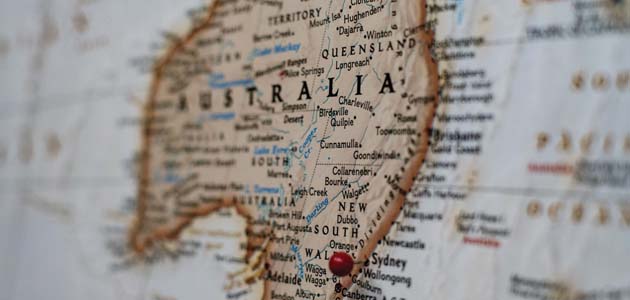Thought for the week: Alison Leonard has empirical evidence
‘Recalling my first hearing of that Australian research, something clicked.’

In the early 1980s, I heard a talk by an Australian Quaker historian that overturned my assumptions about how Quakers have behaved through our history. The speaker showed that, when Australia was a colony, it was not uncommon for British Quakers to behave as other British people did: they used Australia as a dumping ground for inconvenient members of their Society. Thus, if a young Quaker man was a drunkard, it was: ‘Send him to Australia, see if that will make a man of him.’ If a Quaker daughter was unsuitably pregnant, it was: ‘Let’s save our name and send her to the far side of the world.’
I am remembering this now because of the new saying: ‘There is no Planet B.’ If you had said to a British person during the days of empire, ‘There is no Britain B’, they could have replied (if their use of language was imaginative enough): ‘Oh, but there is. There is the empire.’ That empire was both resource and dumping ground. Convicts and errant family members moved in one direction, raw materials moved in the other.
In the twenty-first century, we send our rubbish to be recycled by whoever will take it (and are shocked when they rescind the offer). Some people express anger at residents of our former empire coming to settle in this country, while retaining pride in British skill and industry in using the resources – human and other – that the colonies and then the Commonwealth provided.
Recalling my first hearing of that Australian research, something clicked. It is so very hard for us to accept that there is no Planet B – that we have to learn to live within the limits of Planet A and the resource degradation that we have already inflicted. The first question that clicked into place was: is it especially hard for us British, because of our history of empire? The second question, thinking of those Quakers disposing of their inconvenient relatives on the far side of the world, was: are these factors linked to the issue of privilege, the theme of Britain Yearly Meeting this year?
A third question might be: why has it taken so long for us to realise that Quakers, though perhaps better behaved than many contemporaries, are by no means guilt-free in the crimes of history? After all, many Quakers kept slaves. But it took Tracy Chevalier’s novel The Last Runaway to give the same shock to my system as that Australian research did forty years ago.
These are matters of spiritual, historical and political significance, all tightly interwoven, and deeply challenging to our sense of identity and self-image. May we all pray for Yearly Meeting as it ponders them, and ask for open minds and humble hearts.
You need to login to read subscriber-only content and/or comment on articles.
